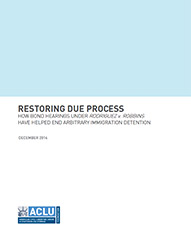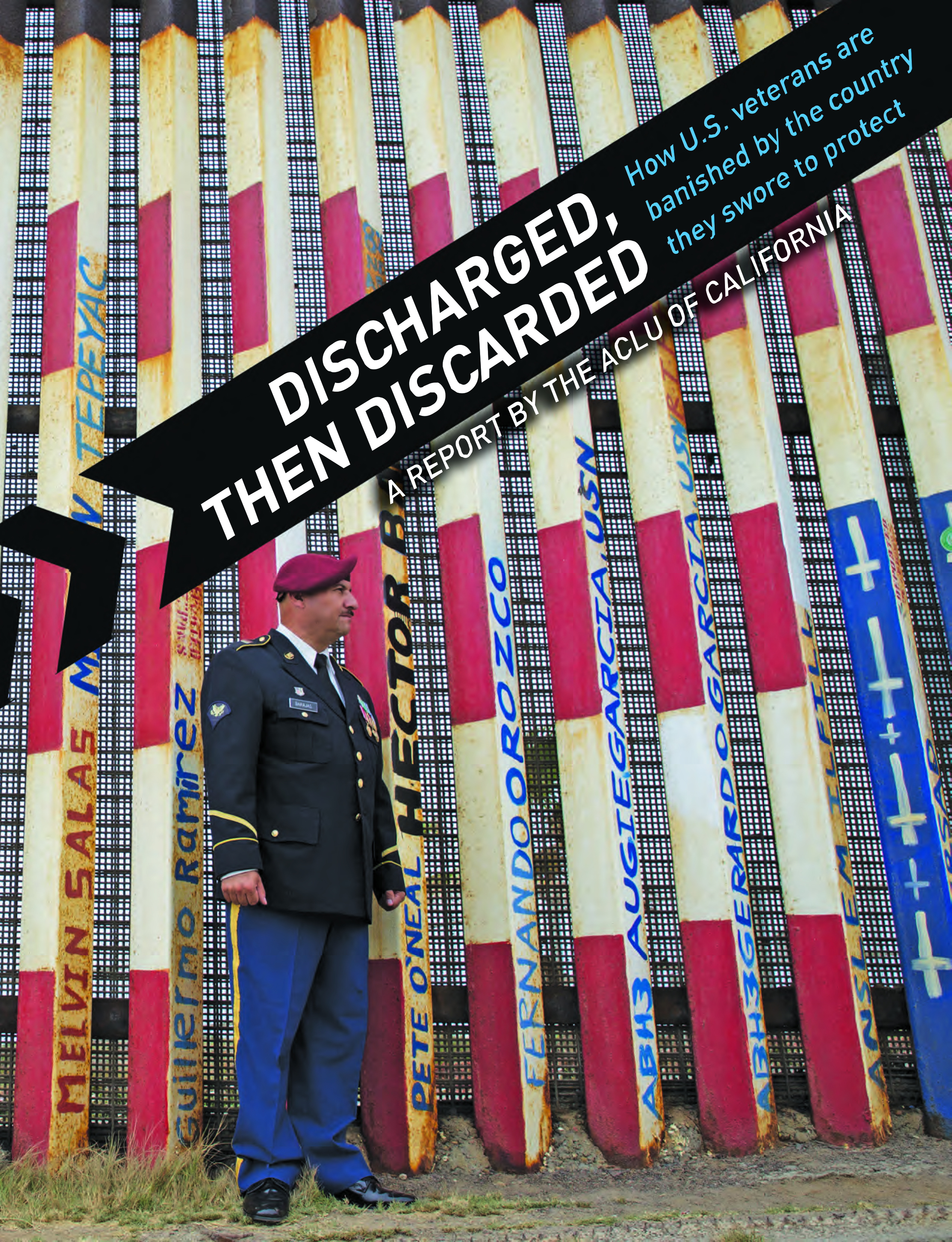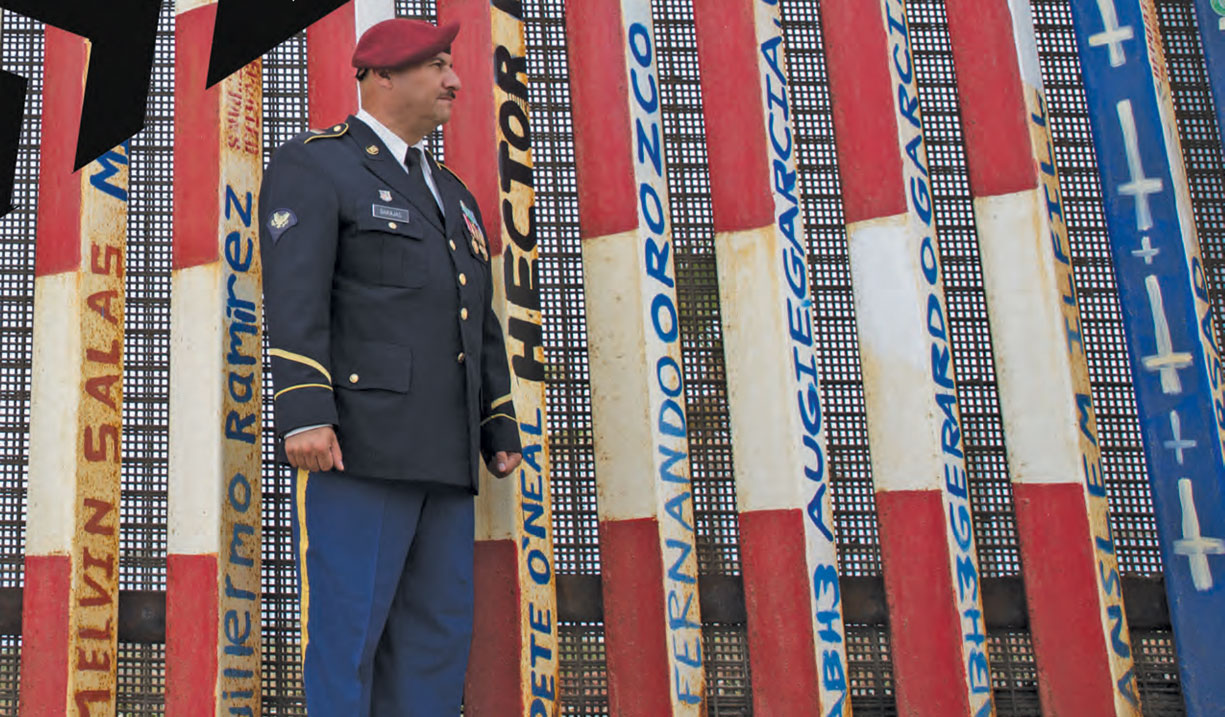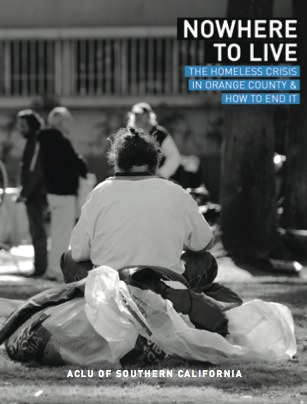In Rodriguez v. Robbins, the ACLU SoCal and the ACLU Immigrants' Rights Project represent a class of noncitizens who have been incarcerated for six months or longer in the Los Angeles area while they litigate their immigration cases, and who have been denied a constitutionally-adequate bond hearing to determine whether their prolonged detention is justified. In the past three years, the ACLU has won important rulings that have required the government to provide bond hearings to class members — their first meaningful opportunity to seek release and return to their loved ones during the lengthy time it can take for their cases to wind their way through the immigration court process.
The government has conducted thousands of bond hearings for class members under the court's orders over the past three years. Based on data produced by the government, this report presents statistics on the outcomes of class members' bond hearings during an 18-month period, from October 2012 to April 2014. It provides the first comprehensive examination of Rodriguez bond hearings, and provides important insight into the implementation of the court's orders and the immigration detention system more generally.
As documented in the report, immigration judges have found that the overwhelming majority of class members should be released on bond or other conditions of release. Thus, their prolonged detention — at great personal cost to themselves and their families and massive financial cost to taxpayers — was unnecessary.
Read the report
Date
Friday, December 5, 2014 - 6:45pm
Featured image
Show featured image
Hide banner image
Related issues
Immigrants' Rights
Documents
Show related content
Tweet Text
[node:title]
Type
Menu parent dynamic listing
Show PDF in viewer on page
Style
Standard with sidebar
Discharged, Then Discarded, a report by the ACLU of California, examines the plight of deported veterans.
The report features a number of veterans who were in the U.S. legally and sustained physical wounds and emotional trauma in conflicts as far back as the war in Vietnam. Once they returned from service, however, they were subject to draconian immigration laws that reclassified many minor offenses as deportable crimes and were effectively banished from this country.
The report also provides key recommendations, including:
- Restoring judicial discretion to allow judges to consider factors such as military service in cases involving deportation.
- Requiring U.S. Immigration and Customs Enforcement (ICE) to adopt an agency-wide moratorium on and/or presumption against removal of any active-duty U.S. service member or honorably discharged veteran.
- Reopening those naturalization applications that were denied or abandoned because an individual was unable to follow through on the naturalization process as a result of their military service.
- Providing legal representation to active-duty U.S. service members and veterans who are in removal proceedings.
Read the full report
Date
Thursday, July 7, 2016 - 6:30pm
Featured image
Show featured image
Hide banner image
Related issues
Immigrants' Rights
Documents
Show related content
Pinned related content
Deported Marine Corps. Vet Marco Chavez Returns to U.S. Thursday
Deported Marine Corps Veteran Marco Chavez Returning to U.S. After 15 Years in Exile
ACLU Report Details How U.S. Has Failed Deported Veterans
Tweet Text
[node:title]
Share Image
Type
Menu parent dynamic listing
Show PDF in viewer on page
Style
Standard with sidebar
Nowhere to Live: The Homeless Crisis in Orange County & How to End It, a report by the ACLU of Southern California's Dignity For All Project, finds that since the OC Board of Supervisors approved a Ten-Year Plan to eradicate homelessness in 2010, the homeless crisis has grown more acute.
Read the report
On any given night, there are over 4,400 people in the OC sleeping on the streets.
The report found that county officials failed to follow their own blueprint, which recommends helping individuals who are homeless move into "safe and affordable permanent housing as an immediate response to their crisis."
The ACLU SoCal urges county officials to:
- Develop a plan that increases permanent supportive housing for people who are chronically homeless by 740 beds.
- Close the county's housing affordability gap to meet the needs of people who are not disabled or experiencing long-term homelessness.
- Create a dedicated source of funding — such as a housing trust fund to pay for permanent supportive and affordable housing.
- Take the lead in decriminalizing homelessness by ending county bans on sitting, sleeping or resting in public places and by penalizing cities that enforce such bans.
Date
Monday, August 8, 2016 - 8:45am
Featured image
Show featured image
Hide banner image
Related issues
Economic Justice
Documents
Show related content
Tweet Text
[node:title]
Type
Menu parent dynamic listing
Show PDF in viewer on page
Style
Standard with sidebar
Pages



